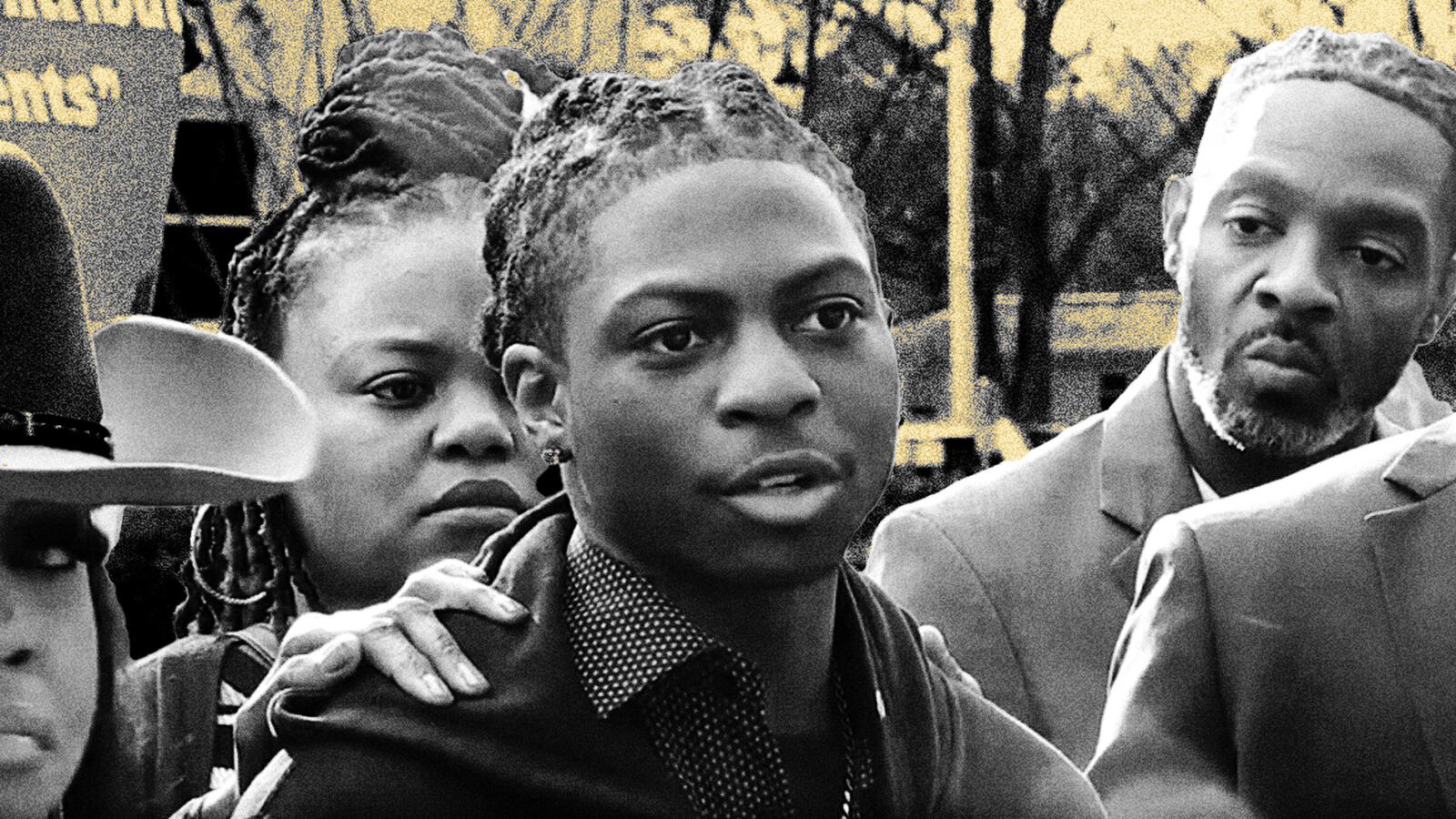A Texas judge struck a blow to the state’s newly adopted CROWN Act on Thursday, ruling that a public school district can continue to punish a Black teen who wears his hair in locs.
In a trial that lasted just a few hours, Judge Chap Cain III ruled that Barbers Hill Independent School District did not violate the CROWN Act when it subjected Darryl George, 18, to in-school suspensions and off-site instruction for nearly six months.
George has been isolated from his peers for most of the school year since he was first disciplined by Barbers Hill High School in August for violating the school’s dress code.
George wears his hair in long, thick locs, which the school says is against its policy governing boys’ hair. Its dress code says boys may not wear their hair longer than their eyebrows, below their ears or past a T-shirt collar—a policy critics say stems from anti-Black stereotypes.
Barbers Hill Independent School District had filed for clarification of the CROWN Act, which prohibits workplace discrimination based on hairstyles associated with race and was signed into state law in September. It maintained that its policy did not violate the CROWN Act because the act doesn’t say anything about hair length. George’s lawyers argued that the CROWN Act protects his locs regardless of length because they are associated with race.
Before the trial, George stated that he refuses to cut his hair because the style helps him feel close to his ancestors. “I started my dreads for a reason, and that’s just to feel close to my people,” he said.
Although the judge sided with the school district in its interpretation of the CROWN Act, Texas Rep. Ron Reynolds, one of the law’s co-authors, said that George’s locs should be protected under it. Reynolds testified that although length wasn’t explicitly mentioned in the text, the CROWN Act should cover locs because “length was inferred with the very nature of the style.”
This isn’t the first time Barbers Hill has come under scrutiny for unfairly punishing Black students over its dress code. In 2020, another Black student filed suit against the district when he was told he couldn’t walk at graduation because of his hair. In the district, Black students make up only 4 percent of the student body.
George plans to appeal the judge’s ruling, extending the legal battle even though he has already spent most of his junior year under suspension. Before the trial, he told reporters he was tired of constantly having to fight for his right to education because of cultural expression.
“It just makes me feel angry, very angry,” he said, “that throughout all these years, throughout all the fighting for the Black History that we’ve done, that we still have to do this again, and again, and again. It’s ridiculous.”






